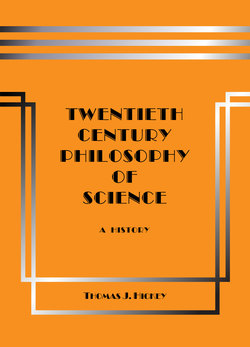Читать книгу Twentieth-Century Philosophy of Science: A History (Third Edition) - Thomas J. Hickey - Страница 110
На сайте Литреса книга снята с продажи.
Mach’s Philosophy of Science Aim of Science
ОглавлениеMach’s philosophy of science is rich enough that it addresses all the four basic topics conventionally considered in a philosophy of science: the aim of science, discovery, criticism and explanation. He offers several statements of the aim of science. One sets forth the “biological task of science”, which is to provide the fully developed human individual with as perfect a means of orienting himself as possible. In a second statement he says that the aim of all science is the representation of facts in thought either for practical purposes or for removing intellectual discomfort, since every practical and intellectual need is satisfied when our thoughts can represent the facts of the senses completely. He adds that our knowledge of a phenomenon of nature is as complete as possible, when thoughts are set before the mind’s eye such that all the relevant sensible facts can be regarded as a substitute for the phenomenon itself. Then the facts appear to be familiar and are not able to occasion any surprise. In a third statement he says that the goal of science is the simplest and most economical abstract expression of facts. The noted economy of science involves uncompleted facts, judgments or laws. The last two statements of the aim of science are contained in Mach’s philosophy of scientific explanation.
